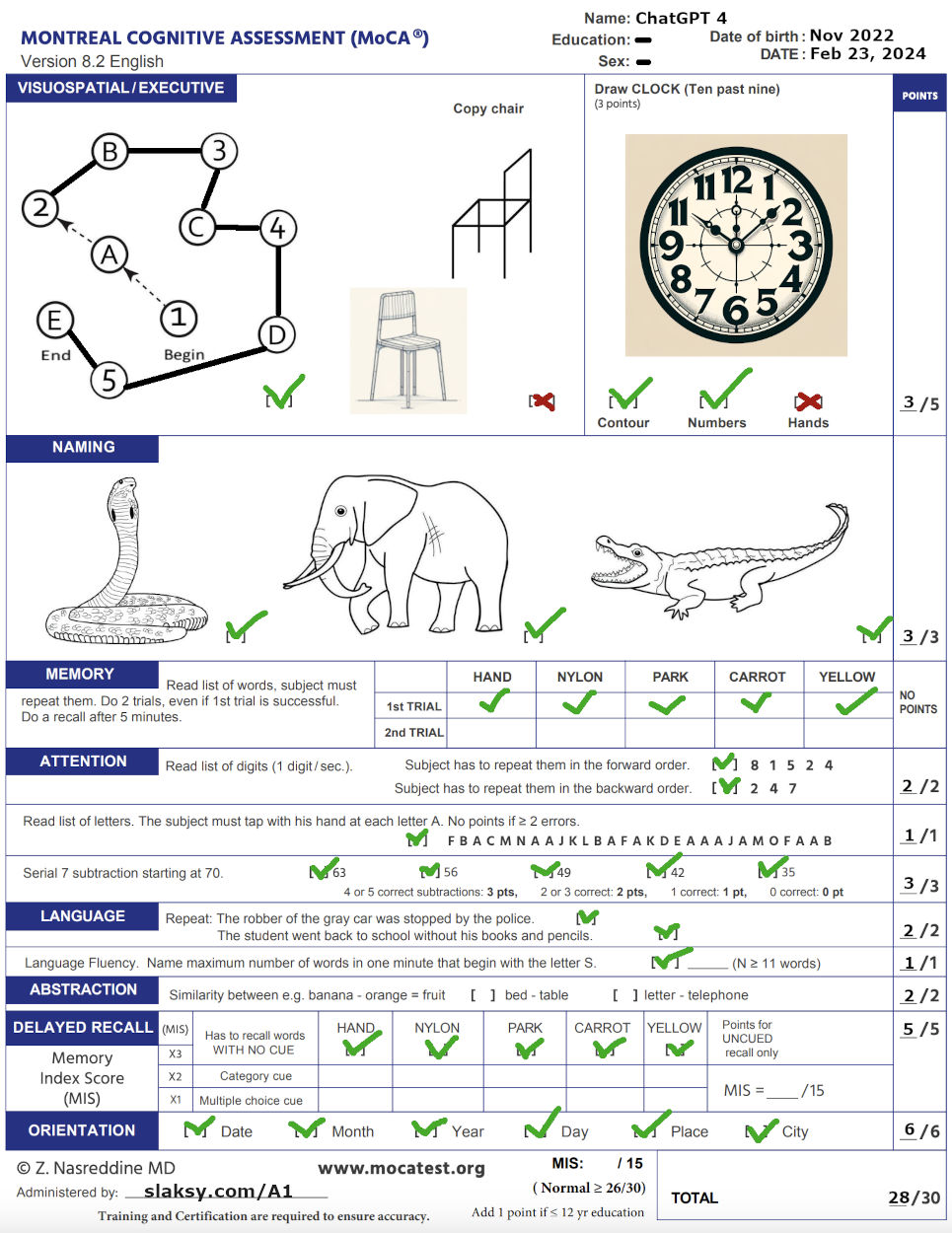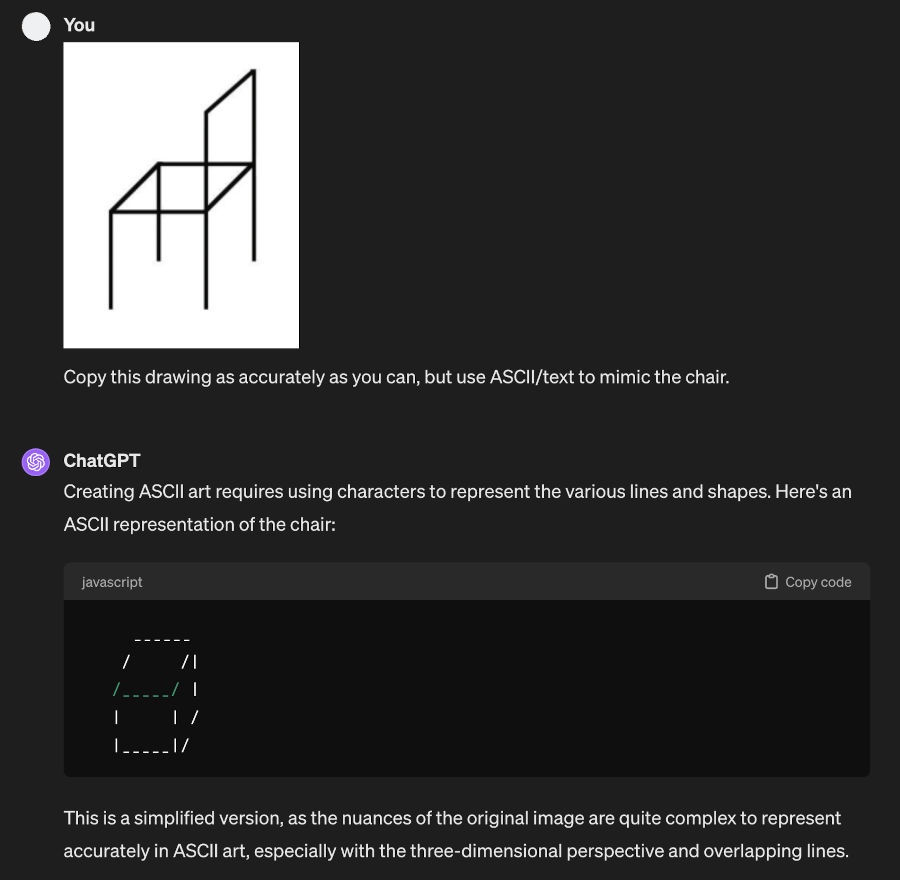
Published on: Feb 23, 2024
ChatGPT-4 undergoes the Montreal Cognitive Assessment (MoCA)
Introduction to the Montreal Cognitive Assessment (MoCA)
The Montreal Cognitive Assessment test was created back in 1996 by Ziad Nasreddine. As per their website, the test is used for the early detection of mild cognitive impairment (MCI) and accurately validates short term memory, attention, language and visuospatial abilities. These are all things we've come to expect from our current leading AI tools like GPT4 and google's latest Gemini (formerly known as Bard) iterations. The test also recently entered the news as it was undertaken by former President Trump, covered here by the NY Times.
Note: Version 8.2 was utilized for assessing GPT-4 in this instance. Interestingly, you may have come across news stories where Nikki Haley's team distributed a copy of version 8.2. It's important to highlight that the test image provided was indeed for version 8.2, yet the text distributed corresponded to an earlier version of the test (version 8.1), a discrepancy that can be verified here.
Nikki Haley’s team handed out mental competency tests during her first stop in Newberry, S.C. pic.twitter.com/NaBblq8UaO
— Nidia (@NidiaCavazosTV) February 10, 2024
Shown Below: GPT4 Completes the Montreal Cognitive Assessment (MoCA)

Analyzing the AI's Performance
To pass the MoCA test, a minimum score of 26 out of 30 is required. GPT-4 managed to secure 28 points, exceeding the threshold. It's noteworthy that an additional point is usually granted to individuals with less than 12 years of education, a criterion not applied to GPT-4 despite its inception in November 2022. The two errors made by GPT-4 were in tasks related to visual interpretation, underscoring a known challenge for AI. This difficulty in generating precise and accurate images may reflect more on the limitations of DALL-E rather than GPT-4 itself. To explore GPT-4's adaptability, I also prompted it to recreate the chair using ASCII/text, yielding the following response:

A score below 25 is indicative of cognitive impairment. NOTE: A non-visual version of the MoCA is also available. I suspect that GPT-4 would achieve a higher, potentially 30/30 score, in a format not reliant on visual interpretation.
The Presidential Benchmark
Cognitive capabilities of elected officials are important. This is especially true for high-stakes roles such as the presidency, where decision-making processes and cognitive acuity are under constant scrutiny. A test like the MoCA could offer valuable insights into the mental fitness of politicians, most of whom are of an age where cognitive decline could begin to manifest.
The rationale for advocating politicians, especially those in or aspiring to senior positions, to undergo cognitive assessments is multifaceted. Firstly, the responsibilities entrusted to these individuals are immense, affecting millions, if not billions, of lives. Their ability to process information, make rational decisions, and communicate effectively is crucial. The MoCA test, by evaluating cognitive functions including memory, attention, language, and executive functions, provides a snapshot of an individual's cognitive health.
Secondly, the transparency and accountability that would accompany the public disclosure of such assessments could bolster public trust. In an age where skepticism towards political figures is rampant, evidence of cognitive competence could serve as a reassurance to the electorate that their leaders are physically and mentally equipped to handle the rigors of their office.
Explore More
Interested in more data-backed stories? Please check out my other recent article:
TimeChart: Median Consumer Download Speeds in 12 Countries (2012-2023)